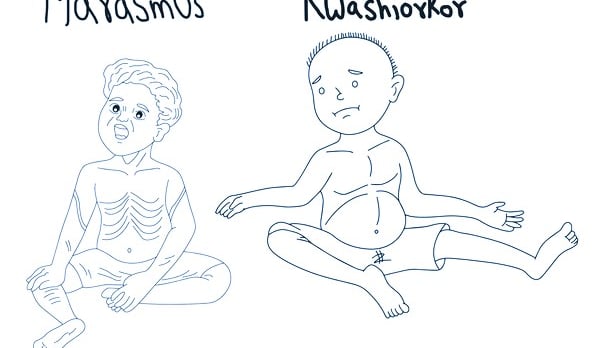Marasmus: A Comprehensive Guide to Malnutrition in Children
Explore Marasmus: a comprehensive guide to understanding malnutrition in children. Learn about causes, symptoms, treatment, and prevention. #Marasmus #ChildHealth #Malnutrition


Understanding Marasmus
Marasmus is a severe form of malnutrition that primarily affects infants and young children. It is characterized by a significant deficiency in calories, protein, and other essential nutrients necessary for proper growth and development. This condition is often a result of inadequate food intake or a lack of nutrient absorption by the body.
Causes of Marasmus
There are several factors that can contribute to the development of marasmus:
Poor diet: Insufficient intake of calories, protein, vitamins, and minerals can lead to malnutrition and, subsequently, marasmus.
Inadequate breastfeeding: Infants who are not breastfed or receive inadequate breast milk are at a higher risk of developing marasmus.
Food insecurity: Living in areas with limited access to nutritious food can increase the likelihood of malnutrition and marasmus.
Underlying medical conditions: Certain medical conditions, such as gastrointestinal disorders or infections, can interfere with nutrient absorption and contribute to the development of marasmus.
Symptoms of Marasmus
The following are common symptoms of marasmus:
Severe weight loss and muscle wasting
Lack of growth and stunted height
Weakness and fatigue
Loss of appetite
Irritability and difficulty concentrating
Dry and loose skin
Thin and brittle hair
Frequent infections
Treatment for Marasmus
Timely and appropriate treatment is crucial in managing marasmus. The primary goals of treatment include:
Restoring and maintaining proper nutrition: This involves providing a balanced diet that is rich in calories, protein, vitamins, and minerals. In severe cases, therapeutic feeding may be necessary.
Addressing underlying medical conditions: Treating any underlying infections or gastrointestinal disorders is essential to improve nutrient absorption and overall health.
Monitoring and support: Regular check-ups and monitoring of the child's growth and development are necessary to ensure progress and make any necessary adjustments to the treatment plan.
Precautions to Prevent Marasmus
Preventing marasmus requires a comprehensive approach that focuses on improving nutrition and addressing the underlying causes. Some precautions to consider include:
Promoting exclusive breastfeeding for the first six months of a child's life.
Introducing appropriate complementary foods at the right age and in sufficient quantities.
Ensuring access to a diverse and nutritious diet for children and their families.
Providing education and support to caregivers on proper nutrition and hygiene practices.
Improving access to healthcare services, particularly in underserved areas.
By implementing these precautions and raising awareness about marasmus, we can work towards reducing its prevalence and ensuring the healthy growth and development of children around the world.
